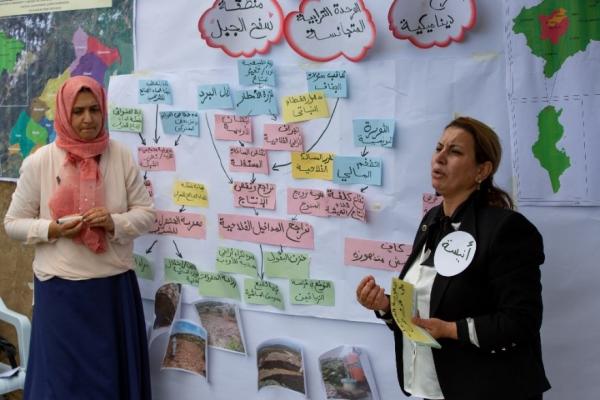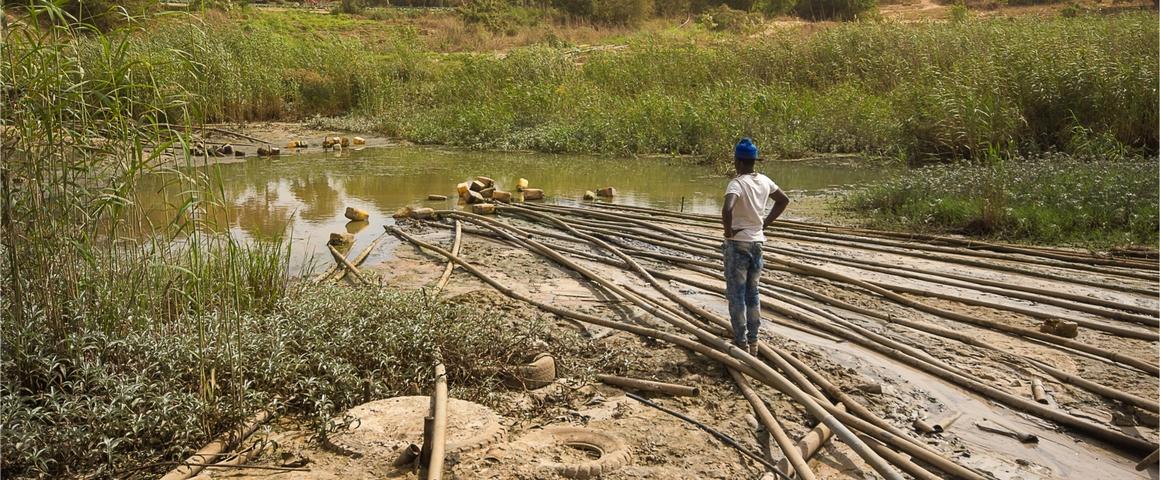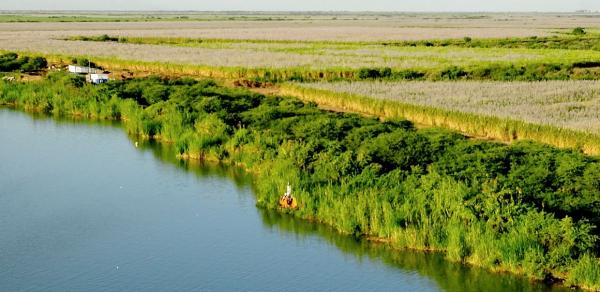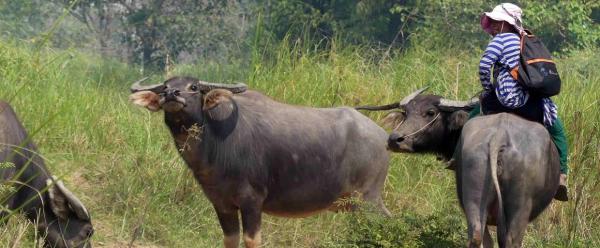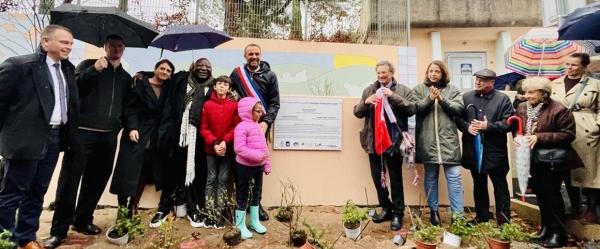In the light of the almost universal growing scarcity and degradation of water resources, the World Water Forum in Dakar will be highlighting concrete actions and solutions to preserve this vital resource worldwide. To this end, some 60 international projects have been labelled "Initiative Dakar 2022".
"This 9th World Water Forum is geared towards solutions and action", says Caroline Lejars, management science specialist at CIRAD and Deputy Head of the G-EAU research unit. "It will devote a lot of time to water and rural development and highlight agroecology and participatory processes aimed at improving water and soil governance and working collectively on effective public policies to safeguard those resources."
Three projects involving CIRAD have been labelled "Initiative Dakar 2022"
That certification recognizes the participation of local people and the collective building of responses tailored to different territories. The following three projects involving CIRAD have been labelled: PACTE, MASSIRE and COSTEA.
PACTE: Programme of adaptation to climate change in vulnerable territories in Tunisia
Between 2019 and 2021, more than 100 public events were held in five Tunisian governorates (Bizerte, Kairouan, Le Kef, Sidi Bouzid and Siliana). They brought together more than 3000 participants (citizens, farmers, elected representatives, civil servants, civil society and private sector players and researchers) and allowed the PACTE project to compile 11 000 action proposals, 3000 of which were directly linked to drinking water and irrigation. Local committees then worked to draft land use plans to facilitate the implementation of effective decentralization policies tailored to local requirements.
The PACTE programme, centring on five Tunisian governorates (Bizerte, Kairouan, Le Kef, Sidi Bouzid and Siliana) set out to improve natural resource governance and support adaptation to climate change in rural territories.
MASSIRE: Innovation for better water resource management in southern North Africa
Some inland parts of Morocco, Algeria and Tunisia are undergoing rapid agricultural expansion, which is increasing pressure on and polluting water resources. In response to the resulting equality and sustainability issues, the MASSIRE project aims to work with small-scale family farmers to identify more sustainable, fairer agricultural and rural innovation systems. The priorities include: training and networking for young people from rural areas engaged in small-scale family farming, and access to technology and services.
This project aims to select innovations with high potential for water management and to assess the conditions for their adoption in southern North Africa, through a participatory approach. It will give young rural people working in family farming access to the technology and services required to develop sustainable family farming operations, by providing them with training and involving them in networks.
The COSTEA initiative: Comité Scientifique et Technique Eau Agricole
CIRAD is involved in several projects under the umbrella of the COSTEA initiative, which has been labelled in its entirety. They include the COSTEA floodplain project (developing and managing floodplains in a context of global change), which aims to identify and design nature-based solutions to control environmental risks (flooding and pollution) in the Gharb floodplain, Morocco. The region is regularly subject to summer droughts, saline intrusions and winter flooding. The development of intensive agriculture has also caused various types of pollution that are now a threat to the health and sustainability of various systems. The COSTEA floodplain project wants to raise awareness among farmers and institutional players of the socioeconomic and environmental benefits of nature-based solutions, notably by means of agroecology.
Two sessions highlighting water and agroecology
At the forum, CIRAD will be participating in two sessions on agroecology. One will focus on agroecological practices within irrigated systems: benefits, implementation and dissemination. The other will look at productive water use by farmers, with a contribution from CIRAD on water health.
23 March, 10:45-12:15 (GMT)
Caroline Lejars will be taking part in a session organized by FAO on the role of irrigation in the agroecological transition. The session will look at the benefits of agroecological practices within different irrigation systems and take stock of their effects in terms of transforming food systems and protecting ecosystem diversity. Several agroecological practices will also be presented and discussed. Lastly, the discussion will turn to their implementation and dissemination.
24 March, 13:30-15:00 (GMT)
Amandine Hertzog, a geographer with CIRAD, will present the Santés & Territoires project being implemented at three sites in Laos, Benin and Senegal (Lake Guiers). The project is combining One Health approaches and agroecological practices, to preserve the environment and particularly water resources. "It assumes that the state of health of a given territory, determined by stakeholders, can be used as a "common" to define the actions to be undertaken as part of the agroecological transition", says Amandine Hertzog. Researchers suggest that combining One Health with the agroecological transition should serve to improve the health of the areas in which the project is being implemented.
The Health & Territories project, signed between CIRAD and AFD on 20 July this year, has just been launched in Saly, Senegal. Co-financed by AFD and the European Union (DeSIRA programme), with a budget of 6 million euros, the goal of this project is to revolutionize integrated approaches to health by associating them with the framework of the agroecological transition. Coordinated by CIRAD, the activities of this five-year project will be developed in four countries: Senegal, Benin, Laos and Cambodia.
Find out more: detailed programme for the forum
